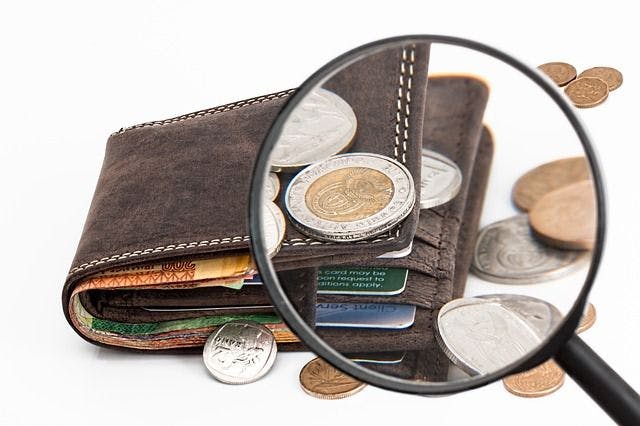When you open an exchange account on a cryptocurrency exchange, you automatically receive a wallet to store your cryptocurrencies. However, as mentioned in this article by CryptoTicker on decentralized exchanges, you do not have complete control over your keys (Both private and public) and hence, this might be a potential security threat. A standard wallet allows you to send, receive and most importantly, store cryptocurrencies. There are different types of wallets such as Web-based Exchange-Hosted Wallets (Coinbase, Gemini, Binance, etc), Web-Based Online Wallets (Blockchain.info, for example), Traditional Cold-Storage Paper Wallets (bitcoinpaperwallet.com, bitaddress.org), and portable hard drive wallets in the form of a USB (like Ledger Nano).
Useful Terminology
The term “hot wallet” describes a wallet connected to the internet while the term “cold wallet” describes a wallet not connected to the internet (For instance, a Hardware Wallet kept in the safe). When a cryptocurrency is in “cold storage”, it implies that it is being held offline in a “cold wallet.” Liquid funds like cash should be in hot wallets, while funds to be stored for a longer term are best held in “cold storage” in an offline wallet.
Types of Cryptocurrency Wallets
Web-based Online Wallets
Online wallets are typically cryptocurrency wallets that you access via your web browser.
Benefits:
- Quick and efficient transactions
Negatives:
- Data-security concerns because information is stored on a third party
- Threat of Viruses, scammers, etc because information is stored online.
Examples:
- Blockchain.info, Coins.ph
Mobile Wallets
Mobile wallets are essentially the applications on your phone and they can often be even used as a means of payment in physical stores. All it takes is to install an app within your mobile phone and they are considered to be safer than cloud wallets. However, if you lose your phone or it gets damaged, it risks you losing your access to the wallet itself.
Benefits:
- Practicality and Convenience
- Additional features like QR Code, etc available.
Negatives:
- If you lose your phone due to an extenuating circumstance, all your crypto may be lost.
- Threat of Viruses, scammers, etc because information is stored on your phone.
Examples:
- Jaxx, CoPay
Paper Wallets
As one of the most secure options to store your cryptocurrency assets, paper wallets are physical copies of your generated public and private keys and can even refer to a printed sheet of paper. Within this method, one can send funds by transferring the money to wallet’s public address and one can withdraw or send one’s currencies by entering one’s private keys or by scanning the QR code written on the paper wallet itself.
Benefits:
- Extremely Secure
- No information stored online or in any servers
Negatives:
- Slow and inefficient
- Complex mechanisms that not everyone may be able to understand
Examples:
- Bitcoin Armory
Hardware Wallets
Hardware wallets are generally the most expensive option, but they are most commonly used as a safe option amongst big cryptocurrency investors. They are easy and convenient to use and often come with differentiated features depending on the brand and model of the wallet.
Benefits:
- Extremely Secure
- Reliable to store large amounts of money and relatively easy to carry around
Negatives:
- Not very easy to understand for beginners
- The hardware wallet must be taken care of and not be lost.
Examples:
- Ledger, Trezor, etc.
Desktop Wallets
Desktop wallets are also a popular choice and is generally considered to be safer than online wallets. In practice, they are downloaded and installed on a PC or laptop and are accessible from the installation device. However, it is vital to note that if your computer is infected with a virus or experiences external damage, there is a chance that you may lose all your cryptocurrency assets and funds.
Benefits:
- Extremely easy to use
Negatives:
- Security and Privacy Concerns
- Reliant on the maintenance of the desktop/computer.
Conclusive Verdict
Hence, these are the 5 different types of cryptocurrency wallets available to store your cryptocurrency funds along with their pros and cons.
Note that CryptoTicker advises all readers and investors to do your own market research prior to investing in cryptocurrencies using these wallets. Never invest more than what you can afford to lose.
Follow us on Twitter, Facebook, Steemit, and join our Telegram channel for the latest blockchain and cryptocurrency news.

